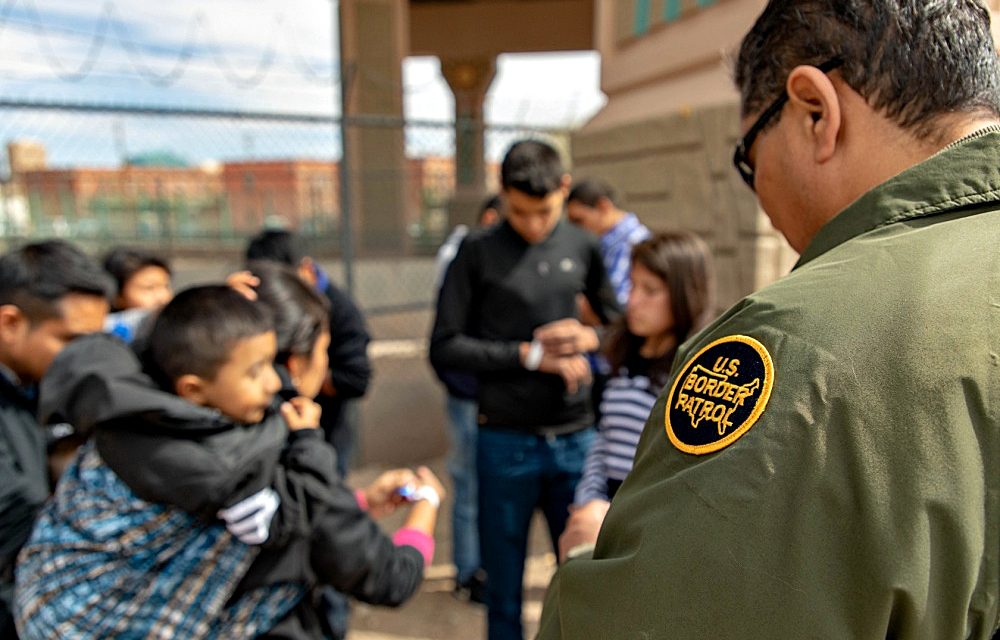In yet another major blow to America’s asylum system, on Wednesday the Trump administration reportedly began sending some asylum seekers from Honduras and El Salvador to Guatemala rather than permit them to seek protection in the United States.
Under the “Asylum Cooperative Agreement” deal signed with Guatemala in July, the Guatemalan government will process the asylum claims of people who arrive at the U.S. border without visas.
For the first time in American history, large numbers of refugees can now be returned to a third country without their consent.
This denies them any opportunity to seek protection in the United States. Instead, people will be required to apply for asylum in Guatemala, a country with one of the highest rates of poverty and malnutrition in the entire Western Hemisphere.
The new agreement went into effect on Tuesday. Under the new rules put in place to implement the agreement, there is only one way individuals can avoid getting sent to Guatemala. They must prove to an asylum officer that it is “more likely than not” they will be persecuted or tortured in Guatemala.
This is a high, likely unreachable bar for people locked in detention with no access to lawyers as well as those first arriving at the border.
The agreement with Guatemala is sweeping. It applies to any person who enters the United States without a visa or permission to enter, regardless of whether they ask for asylum at a port of entry or after crossing the border.
There is also nothing in the agreement that limits it to people who have first traveled through Guatemala on their way to the United States. This raises fears that the agreement could be applied against Mexicans too.
Reporting indicates that, for now, the United States will only send away Hondurans and Salvadorans who passed through Guatemala. The first returns supposedly occurred on Wednesday, with a group of single adults from El Salvador and Honduras sent back from El Paso, Texas.
The implementation of this so-called “Safe Third Country” agreement has long been a goal of the Trump administration. For years, the administration has pressured Mexico and other countries south of the United States to sign such agreements.
This agreement is unlike previous policies that restricted asylum but left open the possibility of winning another form of protection in the United States. Someone subject to this safe third country deal would be barred from any relief in the United States. Instead, a third country would process their claim, and if they won, they would remain in that country.
On November 7, the assistant secretary for international affairs confirmed that the Department of Homeland Security (DHS) had already certified that Guatemala will provide a “full and fair procedure” for determining asylum claims.
However, Guatemala has fewer than 10 employees staffing its asylum office. In 2018, the country processed just 262 claims for asylum.
Days before the agreement went into effect, DHS officials privately indicated that Guatemala was not ready to take in significant numbers of asylum seekers. DHS officials said they were unaware if the Guatemalan government would “provide shelter, food, transportation, and other care” for those deported from the United States.
In response to the new rule, the United Nations High Commission on Refugees expressed “serious concerns” with the agreement. The commission called it “an approach at variance with international law that could result in the transfer of highly vulnerable individuals to countries where they may face life-threatening dangers.”
Similar deals with Honduras and El Salvador may soon go into effect. But setting those deals aside, the Guatemalan deal alone marks a major turning point in the administration’s war on asylum.
If the deal survives an inevitable court challenge, the administration may well have accomplished a near-total destruction of the decades-old U.S. asylum system—without changing a single law.
FILED UNDER: Donald Trump, El Salvador, Honduras, U.S.-Mexico Border


